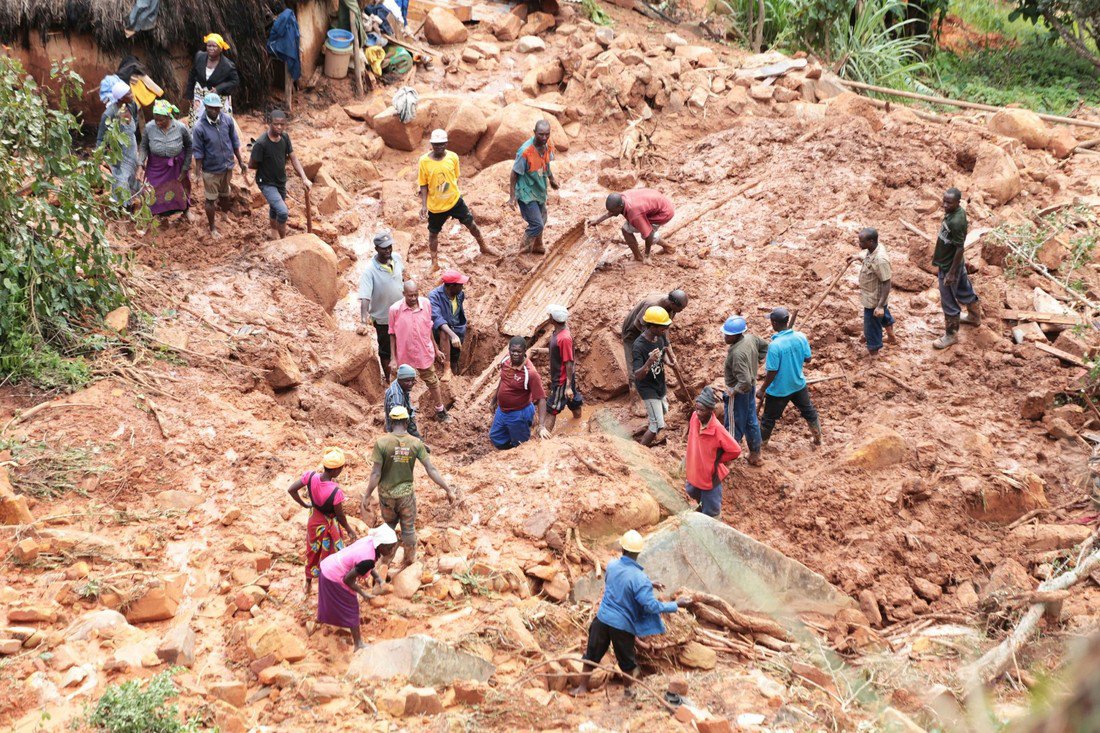Reports from southern Africa indicate millions are affected and in urgent need of clean water, sanitation, food.
Reports from Oxfam staff in areas affected by Cyclone Idai in Malawi, Mozambique, and Zimbabwe are that rain is still falling and people are in need of shelter, sanitation, and food.
Cyclone Idai has destroyed roads, bridges, communication networks, and also crops and other livelihoods.
Oxfam’s initial response is being planned around sanitation, health and hygiene, trying to ensure people have access to clean water, and also food aid. The organization plans to assist half a million people.
In Mozambique, staff are reporting from the worst affected area near the city of Beira that food prices are going up, and 90 percent of the city of 400,000 people is under water. “We are determined to save lives, and working around the clock to ensure effective logistics can be put in place,” says Segio Zimba, Oxfam’s communications officer, who is now at the airport in Beira. He says there are no cars, but that all the aid organizations there are now working together to get access to the affected areas.
In the worst-affected areas of Zimbabwe, near the eastern border around Chimanimani, 80 people have died and hundreds are missing. Roads are impassable and helicopters are grounded due to bad weather. Fredrick Kupfambamhandu, Oxfam’s water and sanitation team leader in Zimbabwe, says: "Ascertaining the extent of damage has been difficult as the area is only accessible by air at the moment. The road network was greatly damaged. Zimbabwe army troops only managed to reach the affected areas on foot today."

John Makina of Malawi said that in the camps, where displaced people have congregated, “you can see how awfully they have been affected.” He said the camps are full of women during the day waiting for their husbands and sons to return in the evening with whatever food they can find. He said that some communities can only be reached by helicopter or boat. “Sanitation in some places is just absent, with latrines and sewage systems washed away or destroyed. People are having to defecate in the bush – this will lead to bad water-borne disease.”
Oxfam staff are engaged in assessing needs and planning a humanitarian response, and this also includes a thorough analysis of the ways the disaster is affecting women and girls. “We are conducting a rapid gender analysis to inform our responses because women and children are the most affected when disasters like this strike,” says Netsai Shambira, Oxfam’s women’s rights and gender justice coordinator. “Ensuring that they are safe and protected is important considering the long distances they are traveling.”
